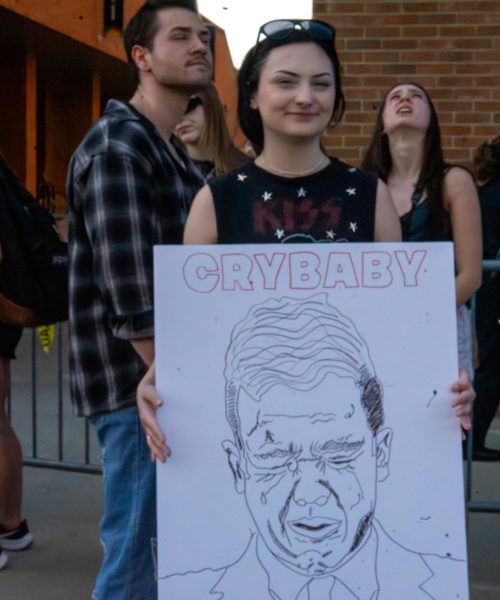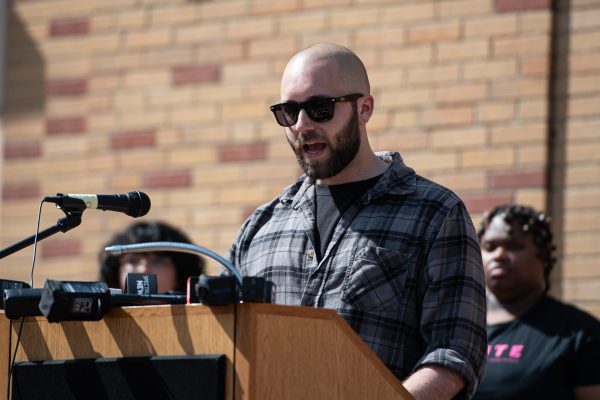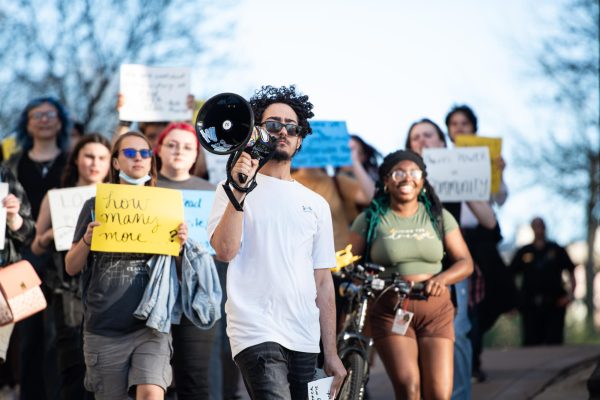Broccoli: It’s what’s for dinner
September 30, 2009
A couple years ago, I thought switching to a vegetarian diet would be an interesting experiment. However, after a few months, my infatuation with cheeseburgers simply drove the experiment to a breaking point. But in the meantime, I was able to acquire several fantastic new ways to use raw ingredients like rice and beans while gaining an appreciation for basic culinary skills that I use every day now.
At the time, there was really no ethical or political reason I chose to refrain from eating meat. I’m well aware of the billions of animals killed each year in slaughterhouses, as well as how grains, which would normally feed starving children, are instead used to feed an ever-increasing amount of livestock. I chose not to eat meat simply to see if I could do it and if it was even worth my while. Although the diet wasn’t for me, the least I could do was cut down on how much raw meat lay dormant in my freezer.
Troubling issues involving the mass consumption of meat do not mean everyone needs to stop eating pork, beef and poultry entirely. Problems with animal cruelty and human starvation don’t happen just because we eat meat. They just get worse because we eat way too much of it.
Westerners are generally mistaken into thinking high amounts of protein are necessary for ample nutrition, resulting in industrial societies consuming twice the amount of meat necessary. The concentrated protein in meat and dairy is accompanied by saturated fats associated with most of the diseases among the leading causes of death in America. This is not to say that a 3,000-calorie pork rib sandwich will give someone a heart attack, but if that’s a daily staple of his or her diet for thirty years, you never know.
Countless studies have been conducted emphasizing the importance or deadliness of meat in our diets, but the organizations funding these studies generally have a financial incentive in a particular outcome, and statistics are oftentimes skewed to the left or right. Therefore, I believe meat is comparative with sugar as far as a healthy diet goes. A little is good, but a lot is not.
However, on a global scale, the consumption of meat can have far-reaching political consequences. Since 1961, thanks to the encouragement of confined animal feeding operations, global meat production increased fourfold from about 71 billion kilograms per year to 284 billion kilograms. The population of men and women, on the other hand, only doubled.
Meanwhile, about 800 million people still suffer from hunger and malnutrition while a majority of cultivated corn and grain goes into feeding billions of pigs, cattle and chickens instead of people. This feeding is incredibly inefficient too, considering five pounds of corn and grain only produces about one pound of meat, depending on the species. Think for a minute about how many extra packages of Ramen noodles we could potentially hand out to people on the brink of starvation if everyone on earth ate only half as much meat.
As far as how the meat industry affects the environment, I have no idea where to start. Maybe I should mention that according to the United Nations, over half the Amazon rainforest has been cleared for cattle pastures. Most water pollution comes from livestock, and livestock also produces more greenhouse gasses than all the cars in the world.
Meat is good and cheap, though. Most people who are busy and on the go every hour of the day generally don’t have time to weigh the consequences of what they eat. The difficulty of eating less meat is simply just trying to avoid it. For some reason, vegetarians tend to get a bad reputation in society. I’m sure half of that reputation has to do with the in-your-face activists and the fact that many vegans really do look unhealthy.
The meatless lifestyle certainly is on track to the betterment of us and the rest of the world, but it’s not for everyone. To make a difference and stop being the fattest society on the planet, I think a more realistic solution is for everyone to simply eat less meat, rather than a few eating none.
Garrison Ebie is a senior electronic media production major and a columnist for the Daily Kent Stater. Contact him at [email protected].























